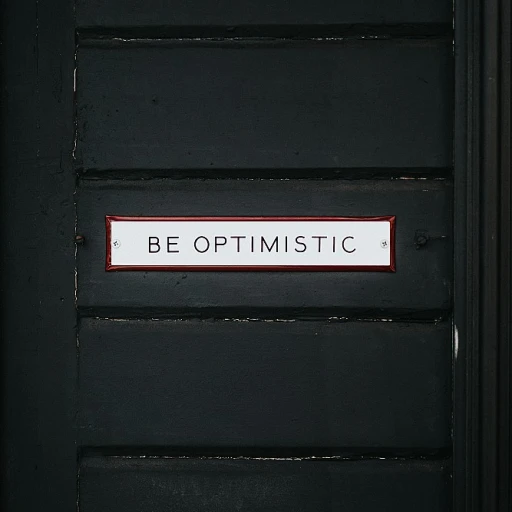
The Core Responsibilities of an Employee Relations Specialist
Key Duties within Employee Relations
The position of an employee relations specialist holds a crucial role in fostering a positive work environment and nurturing the relationship between employees and management. These specialists act as a bridge to help navigate company policies and ensure smooth labor relations. Their core responsibilities include creating comprehensive strategies to enhance employee engagement, resolving workplace conflicts, and ensuring alignment with labor laws. In this role, specialists are responsible for addressing employee concerns promptly, managing collective bargaining processes, and serving as a point of contact for employee-related inquiries. They engage with teams to implement employee feedback systems, with the aim of improving the overall employee experience. Conflict resolution and problem-solving capabilities are indispensable skills for anyone in this job. Understanding the nuances of employment law and labor relations is equally critical for ensuring alignment with company and legal standards. Being involved in recruitment processes and compensation benefits discussions may also fall within their purview, assisting in creating a fair and equitable workplace. As specialists, they continuously monitor the work environment to identify potential issues before they escalate, ensuring that management can make informed decisions. For more insights into complex workplace dynamics, you can explore this resource on understanding insubordination in the workplace. It offers a deeper look into the challenges and intricacies faced by employee relations specialists, enhancing their capacity to cultivate a harmonious workplace.Skills Required for Success
Essential Competencies for Success in Employee Relations
Thriving as an employee relations specialist demands a wealth of skills that balance empathy with analytical prowess. As these professionals work to bridge the gap between employees and management, they must possess a strong foundation in employee experience and a nuanced understanding of labor laws.
One of the most critical skills in this role is problem solving. Employee relations specialists are often called to address complex issues and find resolutions that align with company policies and promote a healthy work environment. An adept problem solver can analyze situations, identify the root causes of workplace conflicts, and propose effective conflict resolution strategies.
Furthermore, proficiency in employment law and collective bargaining is indispensable for specialists, particularly when navigating intricate labor relations. They need to ensure compliance with legal standards and foster equitable employment practices across the organization.
Successful employee relations specialists also rely on strong communication skills. They translate human resources policies and procedures clearly and effectively to employees, ensuring that everyone understands their rights and responsibilities. Interpersonal skills are equally pivotal, enabling specialists to build trust and facilitate open dialogue between employees and management.
Lastly, strategic thinking is at the core of the employee relations role. Specialists who can assess organizational dynamics and proactively address potential issues contribute significantly to enhancing employee engagement and fostering a constructive work environment.
For those interested in the future of DEI approaches within HR leadership, consider reading about whether DEI is becoming obsolete in HR leadership.
Navigating Workplace Conflicts
Effective Conflict Resolution Strategies in the Workplace
Navigating workplace conflicts is a critical part of an employee relations specialist's job. These specialists play a pivotal role in maintaining a harmonious work environment by addressing and resolving disputes that arise among employees. Proficiency in conflict resolution not only facilitates smoother collaboration but also enhances overall job satisfaction. In this role, specialists employ several strategies to tackle disputes:- Active Listening: Encouraging open dialogue between parties involved can uncover underlying issues that might have been overlooked. Active listening is a fundamental skill that ensures employees feel heard and understood.
- Understanding Employment Law: A thorough knowledge of labor laws and company policies is indispensable. Being well-versed in these areas enables the specialist to ensure that resolutions abide by legal standards and organizational regulations.
- Mediating Discussions: Serving as a neutral party, the employee relations specialist guides discussions between conflicting parties. This helps facilitate understanding and fosters a cooperative environment.
- Problem Solving Initiatives: Specialists use conflict resolution skills to guide employees towards mutually agreeable solutions, thereby nurturing a sense of cooperation and respect.
- Implementing Company Policies: By consistently applying company policies, specialists ensure fairness and transparency, which can prevent future disputes.
The Impact on Organizational Culture
Fostering a Positive Organizational Culture
An Employee Relations Specialist plays a pivotal role in shaping the culture of the organization they work with. Their main focus is on fostering a positive and inclusive work environment where employees feel valued and empowered. This aligns with other core responsibilities such as managing employee engagement and enforcing company policies, directly influencing the organizational atmosphere.
Understanding how labor relations function within a company is essential for promoting cultural cohesion. The specialist's role often involves guiding managers and employees through understanding employment law and navigating collective bargaining processes. Addressing these areas with well-honed skills in problem solving and conflict resolution contributes substantially to creating a harmonious workplace.
In addition to direct conflict resolution, maintaining an open line of communication between management and the employee body is critical. This helps address any grievances or concerns before they escalate into larger issues, reinforcing a culture of transparency and trust.
Employee Relations Specialists also have an impact through the recruitment and onboarding processes by ensuring new hires assimilate smoothly into the existing cultural framework, encouraging a consistent ethic throughout the organization. Their influence extends to tailoring job descriptions and compensation benefits to align with the organizational values.
By meticulously managing these dynamics, Employee Relations Specialists contribute to a positive employee experience, which is essential for long-term career satisfaction and organizational success. Their efforts are instrumental in crafting a professional environment where everyone can thrive.













